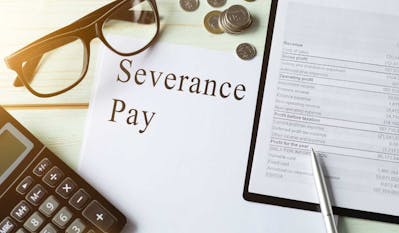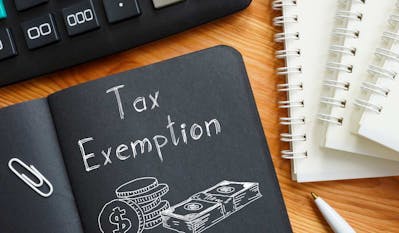The main tax applicable to companies registered in Hong Kong is corporate income tax, commonly known as profit tax.
In this guide, we explain everything you need to know about Hong Kong profits tax, whether you reside in Hong Kong or overseas, and whether or not your company derives profit from Hong Kong.
Understanding Hong Kong’s Corporate Tax System
Hong Kong's Territorial Corporate Tax System
One primary advantage of operating a business via an HK company is linked to Hong Kong's “territorial tax” system, established under the Inland Revenue Ordinance.
This is a simple way of stating that an HK company is only required to pay tax on profits arising from its Hong Kong operations.
What Is the Offshore Profit Tax Exemption?
Companies incorporated in Hong Kong but with no business and paying no tax there are commonly known as “offshore companies.”
Whether a company makes a profit out of a Hong Kong business is at the appreciation of the Inland Revenue Department and ultimately the courts.
Generally speaking, a company is eligible for the offshore status and profit tax exemption if:
- It has no customers or suppliers in Hong Kong.
- It does not sell products or services in Hong Kong.
- The products do not transit through Hong Kong.
- It is not managed from Hong Kong.
Note: Offshore status is not automatically granted; each case is assessed by the IRD and may be subject to court interpretation if disputed.
Corporate Tax Rates and the Two-Tier Tax System
Hong Kong's corporate tax system is usually described as a “flat tax.” This is because the profits tax rate has for many years been fixed rather than progressive, as in many other jurisdictions.
Before the introduction of the two-tier system, Hong Kong applied a single-tier tax structure, under which limited liability companies were taxed on their profits at a flat rate of 16.5%, while unincorporated businesses (such as sole proprietorships and partnerships) were taxed at 15%.
The aim of the two-tier system is to support and attract more small and medium-sized enterprises (SMEs) to establish and grow their businesses in Hong Kong.
Understanding the Two-Tier System
The two-tier profits tax regime introduces a concessionary tax rate for eligible entities. Specifically, the first HKD 2 million of assessable profits is taxed at 8.25% for corporations (which is 50% of the original 16.5% rate) and 7.5% for unincorporated businesses (half of the original 15% rate).
Profits exceeding HKD 2 million are subject to the standard tax rates of 16.5% for corporations and 15% for unincorporated businesses.
However, some limitations are in place to prevent abuse of the system. In the case of a group of connected entities, only one company within the group can benefit from the two-tier profits tax regime in any given year. This measure is designed to avoid tax avoidance through profit splitting among multiple related companies.
It's important to note that the two-tier profits tax regime applies only to companies that carry on a trade, profession, or business in Hong Kong, and whose profits are sourced in Hong Kong.
Offshore profits, i.e., profits derived from activities conducted outside Hong Kong, are generally not subject to profits tax, provided that the Inland Revenue Department (IRD) agrees with the offshore claim.
Corporate Treasury Centre Regime
The two-tier tax system is sometimes confused with other tax concession regimes in Hong Kong.
For example, companies that operate as a Qualifying Corporate Treasury Centre (QCTC) can enjoy a separate concessionary profits tax rate of 8.25% on qualifying treasury activities.
However, this tax incentive is not part of the two-tier profits tax system. To benefit from the QCTC regime, a company must meet specific eligibility criteria and obtain approval from the IRD.
Corporate Tax Rates Summary
In summary, companies having business in Hong Kong are now subject to the following profits tax rates under the two-tier tax system:
| Business Type | Profits up to HKD 2M | Profits above HKD 2M |
|---|---|---|
| Corporations with business in Hong Kong | 8.25% | 16.5% |
| Unincorporated businesses with business in Hong Kong | 7.5% | 15% |
| Corporations with no business in Hong Kong | 0% | 0% |
Some limitations were introduced to avoid abuses under the two-tier profits tax system. In the presence of a group of companies, only 1 is eligible for the two-tier profits tax regime. This means you cannot split the same business between several connected companies to artificially reduce your overall profits tax rate.
You should also know that for the year of assessment 2018/2019, a one-off reduction of profits tax by 100% was approved subject to a ceiling of HKD 20,000 per case. The same one-off reduction for the year of assessment 2019/2020 was passed by HK Legislative Council on 19 June 2020.
Please keep in mind that the above developments on the two-tier profits tax system apply to companies having business in Hong Kong (usually referred to as onshore companies).
No profit tax applies in Hong Kong for companies whose profits are derived from a business outside of Hong Kong (known as offshore companies).
Tax Filing and Compliance
Who Is Required to File Profits Tax?
- New Businesses: If your business is newly registered, you can expect to receive your initial profits tax form approximately 18 months after your business starts operations or from your incorporation date.
- Established Businesses: For companies that have been operating for a while, profits tax forms are typically distributed together on the first working day of April each year.
Overview of Profits Tax Returns
If you're running a corporation or partnership, you're required to file a Profits Tax Return to report your business earnings. If you're operating as a sole proprietor, you'll report your profits using the individual tax return form (BIR60).
There are three types of Profits Tax Return forms you might encounter, depending on your business structure:
• BIR51 for corporations
• BIR52 for entities that aren’t corporations
• BIR54 for non-resident individuals
You can view sample forms on the IRD website to get familiar with them, but note that you should not use sample copies for actual filing. If you choose to file on paper, you must first complete the form using the IRD’s software, print it, sign it, and also sign a Control List to submit alongside the return.
If you file online or opt for a hybrid approach (part paper, part electronic), you can use the Completion Service and Submission Service. These services help link uploaded documents to your return using your Profits Tax File Number and RIN (Return Identification Number).
When Should You Submit Your Company's Profits Tax Return Form (BIR51)?
Each year, any HK company normally receives a Profit Tax Return Form (BIR51) from the Hong Kong Inland Revenue Department.
The deadline to fill in and submit your company's Profit Tax Return Form is normally May 2nd.
However, you may apply for an extension (unless your company closes its financial year between 1st of April and 30th of November). The Profit Tax Form (BIR51) is issued on April 1st every year.
Here is a breakdown of filing deadlines and tax payment based on your financial year end:
| Financial Year End | BIR51 Submission Deadline | Extension Deadline | Tax Payment Deadline |
|---|---|---|---|
| April – November | May 2nd | N/A | As notified by IRD (typically between November and April of the following year) |
| December | N/A | May 15th | As notified by IRD (typically between November and April of the following year) |
| March | N/A | November 15th | As notified by IRD (typically between November and April of the following year) |
What Documents Must Be Submitted for the Profit Tax Assessment?
Each year, your company needs to prepare and submit the following documents to the Inland Revenue Department as part of the profits tax assessment:
- The profits tax return (BIR51) form received from the Inland Revenue Department
- A supplementary form relating to your company's tax and financial data
- A certified copy of your company's auditor report, balance sheet, and profit & loss statement
- A tax computation with the calculation of the profit or loss for the relevant financial year
If your company has not yet started to do business, then you are still required to fill in and submit a Nil Profit Tax Return.
Can My Company Be Exempted from Preparing Audited Financial Statements?
If your company's gross revenue for any given financial year does not exceed HKD 2,000,000, then you are not required to file its audited accounts with the Inland Revenue Department.
Note that the preparation of audited accounts is advisable even if your company's gross income is below HKD 2,000,000, and the authorities may ask you to present such accounts at any time.
The preparation of annual audited accounts is, however, not required in the following circumstances:
- Dormant company: A company is exempted from the obligation to prepare annual audited accounts when (i) it has no accounting transaction for a relevant financial year and (ii) it has declared its dormant status to the Hong Kong Companies Registry
- Hong Kong branch of a foreign company: A Hong Kong branch is not required to prepare local audited financial statements if it submits overseas audited accounts or management accounts and complies with other IRD requirements
It will be wise to keep accurate accounting records even if your company qualifies for exemption.
How to Lower Your Hong Kong Profits Tax
The profits tax is applied to a company's net assessable profits. Fortunately, businesses can deduct many types of expenses to reduce this amount. These deductions fall into several key categories:
| Category | Examples |
|---|---|
| Allowable Business Expenses |
- Rent for office buildings or other properties - Salaries, director fees, and retirement scheme contributions - Client and supplier entertainment expenses - Business-related travel and professional services - Repairs and maintenance - Consultancy and technical education fees - Costs related to lending money - Research and development (R&D) expenses - Foreign taxes paid on income - Trademark, patent, copyright, and registered design acquisition or registration costs - Charitable donations to approved institutions |
| Non-Deductible Expenses |
- Personal or domestic expenses (e.g., commuting costs) - Expenses unrelated to income generation - Capital improvements - Other taxes (excluding employee salary tax) - Payments made for the benefit of spouses or partners - Any item listed under Section 17 of the Inland Revenue Ordinance |
Exemptions on Taxable Income
1) Tax-Free Income and Gains
Some forms of income are exempt from profits tax:
- Capital gains from long-term investments
- Dividends received from other companies
- Interest income from deposits with authorized banks
- Profits from qualifying debt instruments (QDI) that meet regulatory standards
Industry-Specific Tax Incentives
2) Qualifying Debt Instruments (QDIs)
- Issued before April 1, 2018: Subject to 50% profits tax rate, based on maturity
- Issued after April 1, 2018: Fully tax-exempt, regardless of maturity
3) Aircraft and Ship Leasing Businesses
To support Hong Kong’s global role in aviation and maritime services:
- Ship leasing companies: Exempt from profits tax
- Ship leasing managers: Taxed at 8.25%
- Aircraft leasing and management: Taxed at 8.25%
4) Corporate Treasury Centres (CTCs)
- Profits from qualifying treasury activities are taxed at 50% of the usual rate
- Must meet specific substance and activity requirements
Research and Development (R&D) Tax Deductions
Under a 2018 amendment, R&D expenses are categorized for tax benefits:
| R&D Type | Deduction Rate | Conditions |
|---|---|---|
| Type A | 100% deduction | General R&D expenses directly related to your business |
| Type B | 300% on first HKD 2 million, then 200% | Applies to qualifying local R&D activities performed in Hong Kong |
Eligible R&D costs include:
- Salaries for R&D staff
- Consumables used in research
- Payments to designated local research institutions
- Capital costs (excluding land or buildings)
To qualify, the R&D must aim to improve or develop new products, services, or processes with scientific or technical value.
Calculating and Paying Hong Kong Profits Tax
How to Calculate Taxable Income in Hong Kong

Step 1: Remove Non-Taxable Income
First, you need to subtract any income that isn’t taxable. This means you take out amounts from things like selling capital assets, dividends or profits that have already been taxed, and any interest you earn from deposits in Hong Kong.
Step 2: Subtract Your Business Expenses
Next, deduct the expenses that directly help you earn income. This can include costs like rent for your building or land, charitable donations, fees for acquiring intellectual property (like patents, copyrights, trademarks, or registered designs), expenses related to lending money, any foreign taxes paid on your earnings, costs for repairing or replacing equipment, research and development expenses, contributions to retirement schemes, fees for technical education, and registration costs for trademarks or patents.
On the other hand, you can’t deduct personal expenses such as travel between your home and workplace, costs that aren’t linked to generating income, improvement expenses, certain other taxes (other than employee salary tax), expenses specifically disallowed under Section 17, or payments made for a spouse or partner's benefits.
Step 3: Factor in Unused Losses
If your business has incurred losses from operations in Hong Kong, you can deduct those losses from your income in the same year, or even carry them forward to reduce income in future years.
Step 4: Add Balancing Charges
A balancing charge comes into play if you sell a capital asset for more than its depreciated (written down) value. Essentially, you calculate it by subtracting the asset’s cost from the total capital allowances you’ve claimed.
Step 5: Claim Capital Allowances
Lastly, you can claim deductions for the wear and tear of your fixed assets (like land, buildings, or equipment) that are used to generate business profits. For example, if you’ve spent money on constructing buildings or buying machinery, you’re eligible for deductions:
- Commercial properties: You get a yearly deduction of 4% of the construction costs.
- Industrial properties: You receive an initial 20% allowance along with the 4% annual deduction.
- Plant and machinery: You can claim an initial 60% allowance.
Once you’ve worked through all these adjustments, you arrive at your final taxable income. After that, you'll apply either a 16.5% tax rate if you’re a corporation or a 15% rate if you're running an unincorporated business.
When Should Profits Tax and Provisional Profits Tax Be Paid?
Profits tax shall be paid as notified by the Inland Revenue Department, generally between November of the year in which your company's Profits Tax Return is received in April of the following year.
As profits tax is paid after the end of the relevant financial year, your company is required to pay in advance each year an estimated tax (known as provisional profits tax) based on its profit for the previous financial year.
Since profits tax is based on a company’s assessable profits for each tax year, the exact amount is only known after the year ends. To address this, businesses must first estimate and pay a provisional tax. Once actual profits are confirmed, any provisional tax already paid is deducted from the final tax bill.
In some cases, businesses may apply for a reduction of their provisional tax if they meet specific conditions under the Inland Revenue Ordinance.
When Can You Apply for a Provisional Tax Deferral?
You may request an extension or adjustment of your provisional profits tax if:
- Your current year’s profits are expected to be less than 90% of the previous year’s profits or lower than the estimated taxable amount.
- You have unclaimed losses from previous years that should be offset in the current tax year.
- Your business has stopped operations or plans to close before the end of the tax year, leading to lower assessable profits.
- You have opted for personal assessment, which may lower your tax obligation.
- You have filed an objection to last year’s profits tax assessment, which affects the provisional tax charged this year.
Supporting documents, such as draft financial statements covering at least eight months, should be submitted with the application.
Deadline to Apply for a Provisional Tax Holdover
To request a deferral or reduction of provisional tax, your application must be submitted no later than:
- 28 days before the due date of the provisional tax payment, or
- 14 days after the tax payment notice is issued, whichever is later.
For businesses paying provisional tax in two installments, if the first installment has already been paid on time, you may apply to defer part or all of the second installment—provided the request meets the required conditions and deadlines.
The provisional profits tax is payable in two installments, of respectively seventy-five percent (75%) of the requested amount, and twenty-five percent (25%) three months later.
If the provisional profits tax paid by your company is higher or lower than the actual profits tax due for the relevant financial year, a subsequent adjustment will take place.
Can Losses of Previous Years Be Carried Forward?
Losses suffered by your company during a financial year can be carried forward and offset against future profits.
However, losses cannot be carried backward and be used to reduce past profits.
Profits tax in Hong Kong is assessed and paid at the company level, with no possible transfer or pooling of losses between companies of the same group.
Avoiding Double Taxation and Compliance Risks
How Can I Avoid Double Taxation Between Hong Kong and My Country of Residence?
Hong Kong has a territorial tax system and only taxes profits generated in Hong Kong.
This means your company will not be taxed in Hong Kong for profits derived from business outside of Hong Kong. Besides, Hong Kong has signed double-tax treaties with many jurisdictions to reduce or eliminate the risks of double taxation.
What Are the Consequences of Not Filing Your Profit Tax Return (BIR51)?
Failure or delay in filing profit tax returns may lead to progressive penalties. In some cases, the IRD may resort to criminal prosecution. The IRD will also estimate your profits and assess tax based on that estimate, potentially leading to a higher tax bill.
Final Thoughts: Get Expert Help with Your Hong Kong Taxes
Keeping up with tax filing deadlines, provisional tax payments, and compliance regulations is crucial to avoiding penalties and ensuring smooth operations.
An accountant can help you understand Hong Kong tax rules and lower your tax burden.
At Air Corporate, our experienced accountants specialize in guiding businesses through Hong Kong's tax system. We can help you meet all tax requirements while reducing your tax liability.








